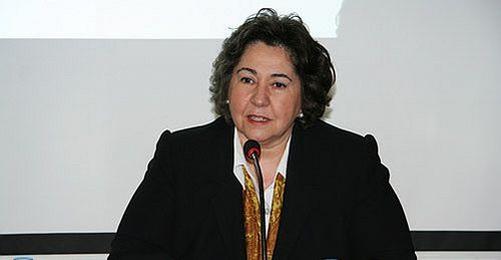Ozuslu said that Turkey's foreign policy and those who want a solution to the Cyprus problem are on the same side for the first time in history. "Neither the Greek Cypriot side, nor the Turkish Cypriot side wants to be the one that leaves the negotiations table," said Ozuslu.
"And Turkey has realized that, if Cyprus remains divided, it would have to search for a new world for itself, and that the European Union (EU) would not be part of that world."
The journalist said that the controversy between the Turkish army and the government ended in an agreement. The reports on the United States wanting bases in Cyprus, are "messages the Justice party government is giving, through the U.S. administration, to relieve military circles," Ozuslu said.
Ozuslu, who commented on the Cyprus talks that began Tuesday at the United Nations (UN) headquarters in New York, answered Bianet's questions.
How do you interpret the negotiations process?
We had a cautious approach toward the New York negotiations until last night. The first reason for that was President Rauf Denktash; and the second reason was his consultant Mumtaz Soysal, who went to New York with Denktash. The meeting of Turkish commanders a couple of days ago had also created question marks.
The picture changed quite a bit after last night. Hopes are up now that Serdar Denktash has announced talks have formally begun, and that neither of the sides left the negotiations table.
The referendum process is about to begin. This was Annan's condition to begin negotiations. If we assume that the negotiations have really formally begun, that means the condition of a referendum has also been accepted.
How is Turkey affecting the process?
Right now, people cannot see beyond May 1. If we look at the statements of the Turkish government, Turkey's policy on Cyprus is in line with the position of Turkish Cypriot Prime Minister Mehmet Ali Talat. Both are spending a lot of effort to keep President Rauf Denktash on the negotiations table.
Turkey, which strives to get a date to start EU-accession negotiations in December, has realized that if the island remains divided after May 1, this would lead to a disaster. The process in Cyprus has greatly affected Turkey's foreign policy too.
What about the possibility of "no solution"?
There are two scenarios for a "no solution": No solution because of Greek Cypriots, or no solution because of Turkish Cypriots. We don't want the Turkish Cypriot side to be the one that leaves the negotiations table. In theory, Greek Cypriots could possibly leave the negotiations table. But in practice, they really cannot.
Cyprus Republic, on April 16, 2003, has formally signed to become an EU member. But if Greek Cypriots are held responsible for the failure of negotiations, they could be isolated from the EU. The EU Commission's Head, Romano Prodi, has clearly stated that.
The Greek Cypriot side, although they do not like the Annan Plan and believe it grants too many political rights to the Turkish Cypriots, will not want to be the one to leave the negotiations table.
If they leave the table, for the first time in history, the Turks will be viewed as the ones who want peace. And that will have certain political consequences:
The EU could impose certain sanctions on Greek Cypriots. Or there could be a move to formalize the division of the island. This could mean a continuation of the presence of the military forces on the island. The EU and Turkey would border each other and that would not have any economic or political advantages for Cyprus.
What if the Turkish side leaves the table?
As Turkey's Prime Minister Recep Tayyip Erdogan and Foreign Minister Abdullah Gul have put it, the TRNC would withdraw into its shell once again. Turkish Cypriots will personally become EU members and migrate to other parts of the world. The TRNC will continue to be economically dependant on Turkey.
Turkey would lose its chances of joining the EU. Maybe, like Ismet Inonu said many years ago, Turkey will start searching for another world for itself, and the EU will not be part of that world.
Another danger for Turkey, which is not being discussed at the moment, is the possibility of the formation of a Kurdish state in northern Iraq. If Turkey advocates two states in Cyprus, it will be faced with the question of why it objects to another separate state in northern Iraq.
How will the political structure shape in Cyprus after May 1?
If there is a solution and Cyprus joins the EU as a whole, all political parties will have to review their policies. Those who advocate nationalism and division in Cyprus will become marginalized parties. For the National Unity Party (UBP), who has served in every government since 1975, this issue has begun to be discussed.
UBP will either alter its policies and seek ones that advocate solution and a joint life for the two communities, and become a liberal right wing party, or it will become marginalized by advocating division, nationalism and ethnic differences.
Other parties will fill the space left empty by UBP. Foreign Minister Serdar Denktash could seize the leadership on the right wing through a liberal right-wing party.
Similar things could happen on the left wing. Today, EU advocacy is a priority for the left-wing parties and their policies seem to be in line with the EU. But in practice, many difficulties may come up during the EU process, and they may have to change certain of their policies. In the case of a solution, Prime Minister Talat, who is also the head of the Republican Turkish Party (CTP) would be recorded in history. His position in Cypriot politics would become stronger. In case of an agreement, President Denktash would regain the prestige he had lost.
What about the U.S. who wants bases in Cyprus?
About reports that U.S. wants bases in Cyprus, U.S. State Department Spokesman Richard Boucher said: "I did not ask anyone, but my answer is no." This could be viewed as a diplomatic maneuver.
The U.S. may not ask for bases in Cyprus within the framework of the Annan Plan. But after a reunited Cyprus becomes a NATO member, the U.S. could have a base in Cyprus.
The security concerns of the two communities would die away. The Justice and Development Party may be making a maneuver and sending such a message through the U.S. administration to relieve the military circles in Cyprus. (BB/EA/NM)









